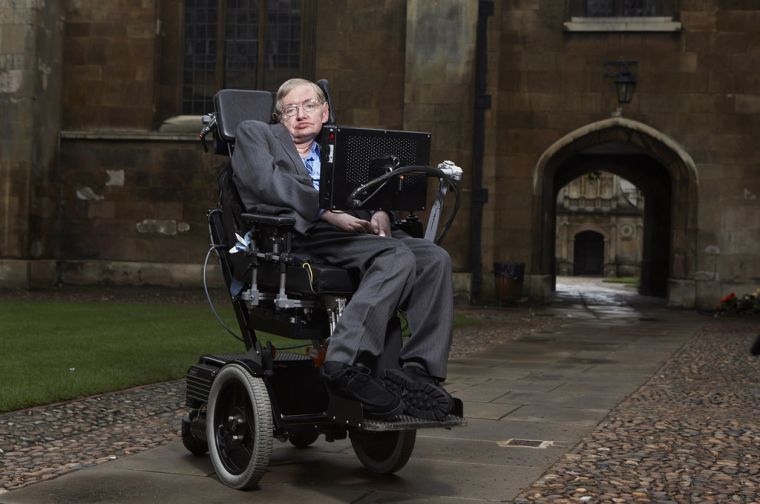Stephen Hawking and learning to be wrong: Why it is good to change our minds
This morning we woke to the news of the death of one of the world's great minds and characters. Stephen Hawking, the man who received so much of life as 'a bonus', will be sorely missed, and will be someone whose legacy lives on.
I will be one of many who will, with trepidation, pick up A Brief History of Time and will attempt to fathom it, because knowledge and learning of the ilk of Hawking should not be left solely to the specialists. We are all richer for his understanding even if, like me, our understanding of quantum physics can be written on the back of a postcard.
I may not learn much more about physics in my life, but I think I can learn about learning through the example of Hawking and others.

There is a notion in the world of academia about the 'half-life of knowledge', and a further one about the 'half-life of facts'. The principle is simply that our understanding moves on so that what we thought was true has been superceded by new information. In science that half-life is 45 years; in psychology it is five. This idea doesn't extend in quite the same way to the arts, but still reaches out its fingers into the worlds of revisionist history, new insights from archaelogy, and in finally beginning to listen to the voices of those who did not shape the narratives of traditional history.
It seems to me that this reality presents us with a challenge in two ways. For us as theologians (including all of us who say we are not theologians), we are invited to get a grip on what it means to hold out Truth in a world where truth (and facts) are in continual evolution.
There are many more skilled theologians who can offer a new apologetic for a post-truth world, but from a local church view I see that we need to be in the business of teaching skills to interpret and learn, rather than simply a set of knowledge that is conditioned by a particular moment in time. We may also need to grow in humble confidence that not everything changes, and that the certainty of God's love and posture of being for us, is the bedrock of our very being.
Perhaps more pertinently, we also need to relearn how to be wrong. Stephen Hawking found himself in the place of challenging Einstein's thinking (I think, anyway: again I refer you to the paucity of my physics). As far as I can tell he did it with grace. We have much to learn. Over the last few months we have seen a regular outpouring of visceral condemnation for people who once said something on Twitter. This is not an apologetic for people who churn out bile against others, but it is a challenge for us to embrace the idea that we get it wrong and that's OK.
We are allowed to change our mind.
The Bible gives us plenty of examples of people changing their view. Zacchaeus, giving away four times what he had stolen. Saul/Paul, going from holding the coats at the murder of Stephen to spreading the message of the Jesus whom he had persecuted. I'm treading on dangerous ground here but when Abraham pleads with God about the fate of Sodom and Gomorrah (Genesis 18), even there we see that God shifts position when presented with the possibility of new evidence.
It seems to me that in our society we have lost such grace. The ground on which we can U-turn, has been taken from us. Changing our minds is seen as weak, or politically expedient, or as insincere. I wonder if it means that many people find themselves caught in an integrity gap, where they are unable to live in the territory of what they once thought, but the way to a new land is blocked by the giants of our 'ungrace'. We hold people to something that they once said, using it as a tool of distrust, robbing all of us of the opportunity for grace and the possibility of learning.
The Old Testament has a phrase for this inflexibility, 'a stiff necked people'.
Stephen Hawking is quoted as saying, 'without imperfection, you or I would not exist'. We are not perfect. We are works in progress, being saved and those who continue to press on towards a goal. In all of these images there is the sense that we are not finished yet, that God's good work in us is not yet complete. We have much to learn, and good learning comes through getting things wrong.
And so as we celebrate the life of Stephen Hawking, let us celebrate learning and growing and knowing that one day even Hawking's thoughts will be caught up in the half-life of knowledge.
Rev Jude Smith is the team rector of Moor Allerton and Shadwell in North Leeds. Follow her on Twitter @gingervicar











